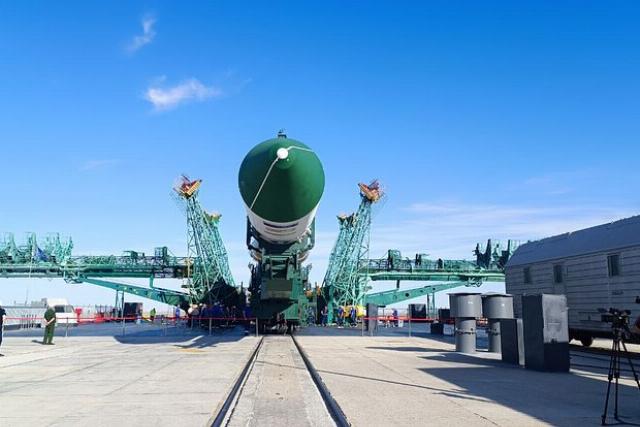In the period from October 2018 to the end of May 2024, 125 trouble-free launches of space rockets were carried out in Russia. Over the same 5.5 years, the rest of the world has completed 793 space launches. Not all of them were successful — 44 ended in accidents, as a result of which the payload did not enter orbit. How not only to put space launches on stream, but also to ensure their safety is in our material.
Reliability and efficiency: what modern launch vehicles should be like
In Russia, 105 accident—free flights were made by Soyuz family carriers, 12 - Proton—M, 5 — Angara and 3 - Rokot. Rockets manufactured at the State Corporation's enterprises flew from the Baikonur cosmodrome 57 times, from Plesetsk — 45, from Vostochny — 14, and from the Guiana Space Center — 9 times.
Roscosmos does not stop its efforts to improve the reliability of the means of withdrawal. Intensive activities in this direction have been carried out at the enterprises of the industry for more than a decade, and are bearing fruit.
During this time, the rest of the world has completed 793 launches. Not all of them were successful — 44 ended in accidents, as a result of which the payload did not enter orbit. Thirteen accidents occurred in China, thirteen in the United States (three launches were carried out from a spaceport in New Zealand), six in Iran, three serious failures each occurred during launches from the Guiana Space Center, North Korea and Japan, two from Indian spaceports, and one in South Korea.
Nowadays, when cosmonautics turns into the same applied branch of life and activity as, say, energy or air transport, the attitude towards the reliability of rocket and space technology is changing. The accident rate schedule, which has been gradually decreasing from year to year since the early 1960s, has decreased to a minimum in recent decades, but suddenly lost its smoothness, "random" peaks and dips appeared on it: carriers sometimes fly without problems, then suddenly begin to malfunction…
The world's leading rocket and space countries are intensively developing promising launch vehicles. The first period of creation of space carriers based on combat missiles is long over. For half a century since the beginning of the space age, a significant number of modifications of basic models of launch vehicles have been designed, created by upgrading individual product elements within the framework of established layouts.
The current stage of the creation of new missiles is characterized by the optimization of projects, taking into account the experience of operating existing equipment. Reducing the time and costs for the development and operation of launch vehicles is achieved through the use of modular principles, as well as through the use of the latest methods for the development, manufacture and testing of components (digitalization, paperless and additive technologies, artificial intelligence, widespread use of computer modeling, etc.).
Experts believe that launch safety is the basis for the effective functioning of the rocket and space complex, not only the most important operational and technical characteristic, but also an integral internal property of technology, which is structurally laid down at the design stages.
At the same time, space research still remains an extremely difficult aspect of human activity. A special role is assigned to the launch vehicles here, since access to space directly depends on their capabilities and reliability. The latter is important for scientific research and applied work, but carries significant risks. The attitude towards trouble-free starts is gradually changing. The transition from understanding trouble-free as something outstanding and prestigious to ensuring that high reliability becomes a feature inherent in rocket and space technology is clearly expressed. That is, accidents should be considered something extraordinary, which, however, cannot be completely avoided due to the complexity of the process of penetration into space.
What's behind the numbers
An analysis of the statistics on the operation of launch vehicles around the world shows the following trend: the number of unsuccessful launches of serial launch vehicles tends to zero, despite the fact that the accident rate of new and experimental equipment (especially when such equipment is created not by industrial structures with rich experience, but by small organizations, often startups that do not have the necessary competencies) is quite high.
For example, of the 13 emergency launches carried out in China, five are mass—produced missiles, and nine are carriers newly developed by both state and private companies.
Two of the three Japanese and one of the two Indian accidents occurred during flight tests of new families of launch vehicles. Iran, North and South Korea are at the stage of establishing their own space programs, when launch vehicle failures are a frequent occurrence.
At the same time, it is interesting that all three abnormal situations with the European Vega light carrier are associated with a violation of the production process or preparation of rockets for launch, and three failures of the ultralight Electron carrier, mass-produced by Rocket Labs, occurred for various reasons not directly related to the specifics of the project.
However, it should be repeated: it is necessary to treat the accident-free characteristic not as an outstanding indicator, but as a constant bar that should not decrease. At the same time, accidents are, alas, possible, although extremely undesirable from an economic point of view. The same trouble-free series of domestic launches follows a series of emergency situations that happened earlier. So, in 2010, 2013 and 2016-2018, there was one accident per year, in 2012 and 2015 — two, in 2014 - three, in 2011 - four.
Igor Afanasyev

